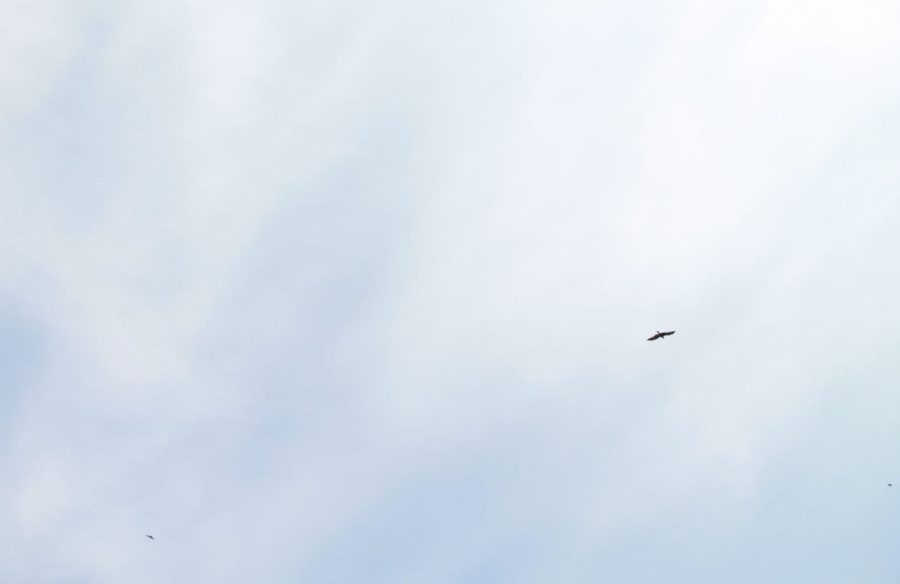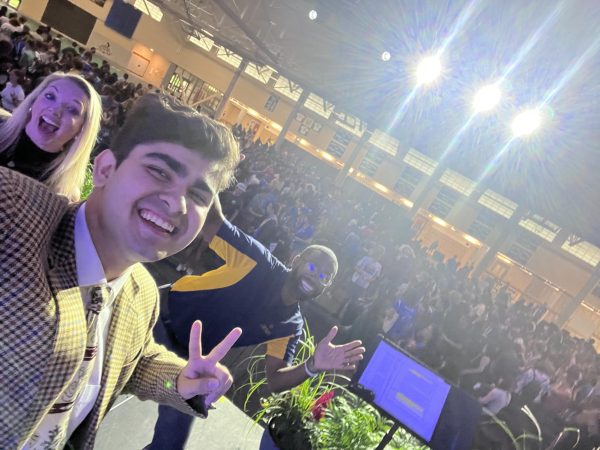“What is lost, however, changes: it could be a home, a neighborhood, or a person. Memory joins these losses in a latticework, in which the disparate points can be elusive and sometimes unexpected.”
I’ve lived in Lahore, Pakistan for the vast majority of my relatively short life. Slowly, the city has shifted in ways I cannot comprehend. When taking stock of everything year after year, something would always be slightly changed. Buildings abandoned with signs indicating land disputes, high rises that never seem to be completed , the malls that did get built dominating the skyline in front of miles of shanty-towns filled with the destitute. There was an indescribable wrongness to it all.
“The loss of a once-shared culture, of ties to places now out of reach. Yet they speak to the losses of our moment as well, when the neoliberal state and corporate values have prevailed, and our responses to them are constrained by our sheer powerlessness to resist.”
I’ve always felt that it was my fault for feeling that way. Though I have lived in Lahore, it could be argued that I was really raised in Japan, where I spent my elementary years learning a language and a culture that could not really be mine. English is my default way of thinking, my native tongue is still foreign to me. Once I made my way back to Pakistan, I never got into Bollywood the same way my peers back home did. The explosion of Coke Studios and the rebirth of Desi music moved by without me ever noticing. When my friends would recite poetry they’d read to a chorus of “wah wah wah’s”, I’d laugh along and hope they didn’t notice my lack of understanding of their words. I could not tell you the names of the important figures of my country outside the ones anyone with a cursory knowledge of our history would know. My history textbook was the one link to a past I otherwise felt I never had.
“It is our tragedy that we are not allowed to live in the places where we are born and become ourselves, the dreams of which remain alive within us. The beginning of our sojourn on this earth is like a blue sky. Time turns it gray. But remembrance turns that ash color into a deep smoky blue. This is the place between dreams and reality, where we keep living and dying.”
My memories of Lahore exist in much the same way the smog-choked air of the city does: a haze of dust and vague outlines. I can close my eyes and picture the same crumbling concrete facades I’ve passed by from the insular bubble of my old car, the shops stacked on top of shops stacked on top of shops. The colors of a particularly vibrant sunset that cut through the regular dullness of living there. The figures on the street I drive by mix and swirl into an indistinguishable blend of fabric, suffering and movement. Something is wrong here. Maybe it’s me, maybe it’s the city.
“A strange mist emerged out of the deep shadows, covering the whole place, as if somebody had placed crimson toffee on deep green paper, and it had begun to melt.”
In essence, my time in Lahore was marked deeply by this sense of alienation and an even deeper desire to escape it. Everywhere I went, the air felt saturated with a feeling of tension and hopelessness. I could have chalked it up to the latest political or economic disaster, but it felt like more than that. After nigh-on 75 years, shouldn’t a country become more resilient to temporal disruptions? But disruptions imply that there was a state of normalcy to return to. Has there ever been a normal for Pakistan, for Lahore, for me? I didn’t know, so I found a book.
“The smoldering burn of memory descends through a dark, half-open window like a drop of moisture in the late winter air of Phagun. I have experienced this air many times. It has swept through my body time and again, and I have borne it each time.”
The first thing that struck me about Zubair Ahmad’s “Grieving For Pigeons” was not something about the book, but about my relationship with books as a whole. Despite how many books I had read, not once had I read stories about my country, let alone my city. I had read historical accounts, academic texts and news about it, but never once did I read about the people who actually lived there. It was honestly jarring to see places that I had been to (for those curious, the Mall Road mentioned in the book is one street over from where I lived and where my high school still is) and lived in named and discussed at length in a novel. I subconsciously felt that literary recognition was only reserved for more “important” places, places with history and culture. Not Lahore. Anywhere but Lahore.
“There is no easy recourse from both the bitterness and the sweetness of the past.”
The book is set quite a bit before my time, in the decades following the Partition and right until the execution of Zulfikar Ali Bhutto in 1979, around when my parents were born. Though I lie at the wrong end of the generational gap in this case, the book rings just as true for me as it does for older Pakistanis. That same feeling of alienation, of longing, of trying to grasp at a past that simply isn’t there anymore, emanates from every page. Each of the twelve stories in the anthology brings a new layer of understanding to every emotion I had felt about Lahore up to this point, contextualizing and humanizing what had once seemed so impersonal and incomprehensible in my textbooks. I saw myself reflected in the mirrored walls of text.
“Why does it happen so? People stay in their groups, but then something happens and it falls apart. Why is that?”
First and foremost, this is a book about people. The people of Punjab, the people of Lahore in particular. The relations between them, in friendship or unrequited or familial love, is the primary focus in each narrative. But even when the narrative focuses on one’s childhood, there are no rose-tinted glasses with which to view it. From that early age, there is this implicit understanding, perhaps through social osmosis or just observation, of the sorrow that permeates each corner of the estranged city. Memories of people and places that no longer exist flutter in and out of reality, the morbidity of the present state not all that much better than the past we sometimes catch glimpses of.
“A life has passed but the fragrance of Bajwa’s flowers still hangs in the air.”
But this all makes the book sound much more depressing than it actually is. Don’t get me wrong, it is quite a melancholy book in some places, yet it has this strange sense of comfort at the same time. I even laughed a few times. There is this persistent undercurrent of hope in the ties that bind the people of not just Lahore, but of the subcontinent as a whole. Arbitrary borders may look impressive on a map, but to the people there, they act as nothing but an obstacle to be overcome to finally obtain closure on a past that lies just beyond their reach, if only they were able to inch a little closer. To hold onto those lasting memories of happiness and warmth, keeping them close as everything else shimmers and shifts like a cascade of rushing water. Remembering those who have long since passed with the same fondness as when they were still around, and holding onto those images. Amidst all the confusion and chaos and loss, there is always something tangible to hold on to.
“Our eyes met and, for a moment, were one.”
There is never a tidy resolution to the lives of the people in the book, just as there is no tidy resolution to the lives of the people who live in Lahore. They wake up each day, with not much but the smoky blue fog of remembrance and a yearning for a past that they can barely remember, the pigeons that they grieve for having long since flown away. Yet the memory of how they flew through the darkening evening skies of Lahore may be enough for us to keep hoping. I grieve for the pigeons, and maybe one day I will see them again.













